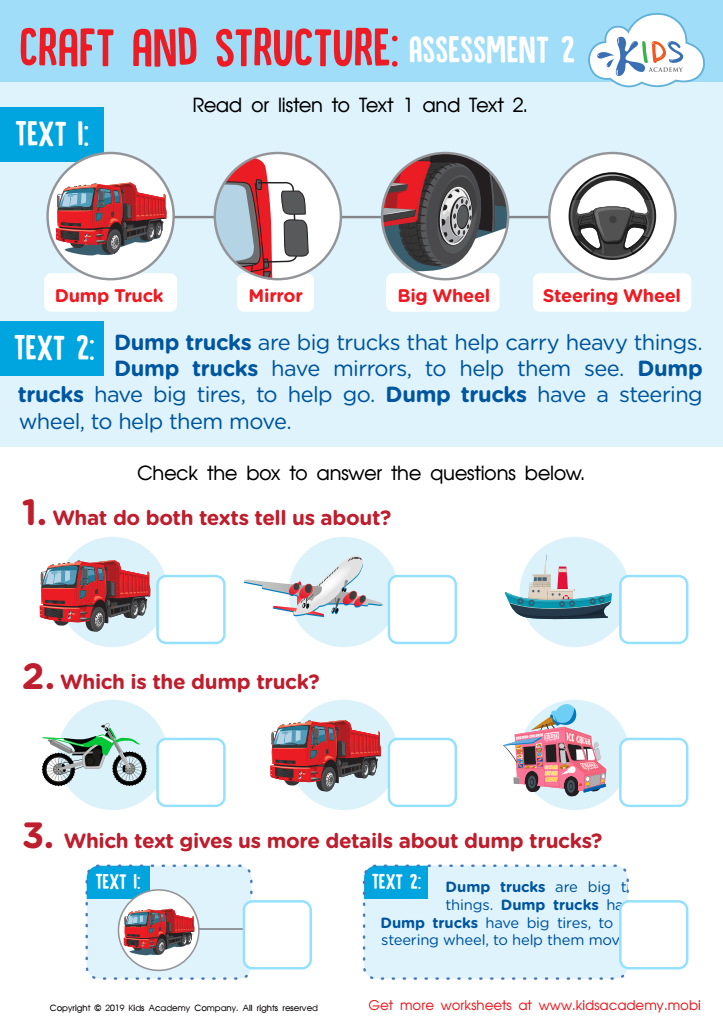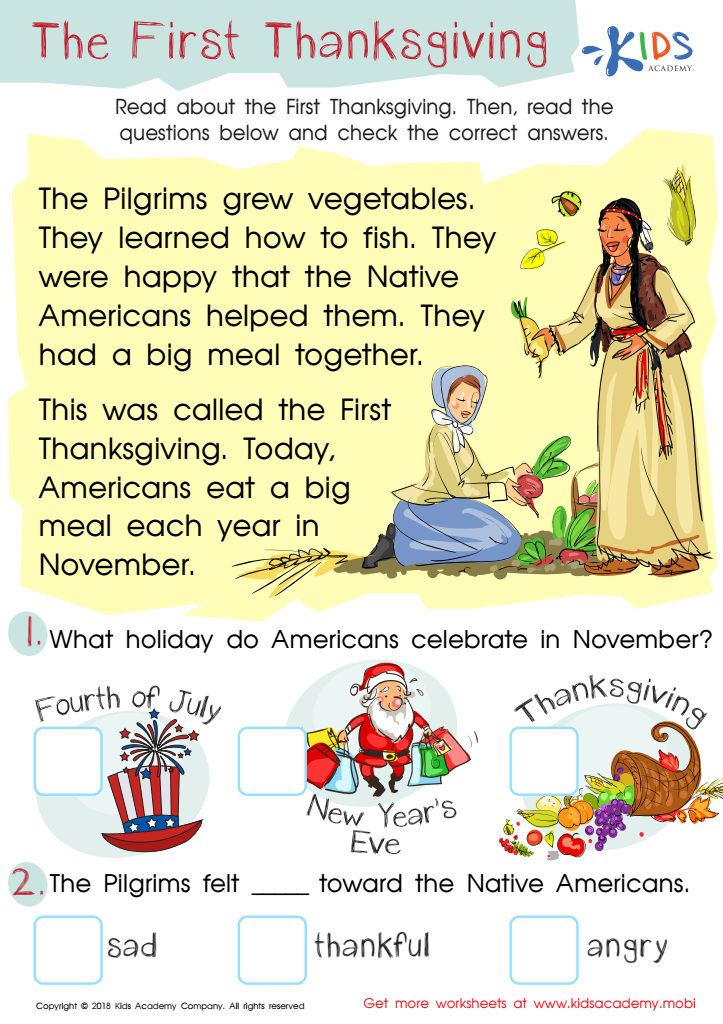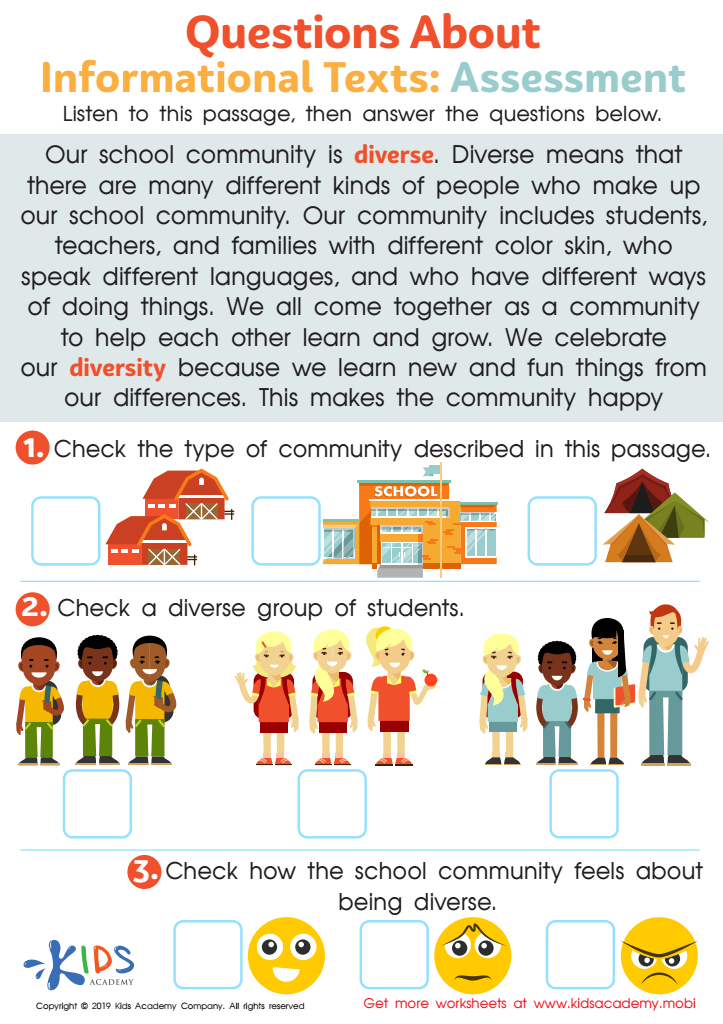Reading Non-Fiction worksheets activities for Ages 6-7
3 filtered results
-
From - To
Discover engaging Reading Non-Fiction worksheets designed specifically for ages 6-7! Our thoughtfully curated activities help young learners develop essential reading skills while exploring fascinating real-world topics. These worksheets feature age-appropriate texts that introduce children to nonfiction genres, promoting critical thinking and comprehension. Each activity is crafted to enhance vocabulary, encourage curiosity, and stimulate discussion, making learning fun and interactive. Perfect for home or classroom use, our resources support early literacy development and align with educational standards. Support your child’s journey into nonfiction reading and foster a love for learning right from the start! Explore our activities today!


Craft and Structure: Assessment 2 Worksheet


Assessment: First Thanksgiving Worksheet


Questions About Informational Texts: Assessment 1 Worksheet
Reading non-fiction activities for children ages 6 to 7 is essential for fostering a love of learning and enhancing critical skills. At this age, children's curiosity about the world around them is at its peak. Non-fiction literature offers an opportunity to satisfy that curiosity, presenting information on a variety of topics, from animals and space to history and technology.
Engaging with non-fiction helps children develop important critical thinking and comprehension skills. It enriches their vocabulary and introduces them to informational text structures, which proves beneficial as they transition into higher grades. Understanding the differences between fictional stories and factual information empowers them to discern the reliability of various sources—a vital skill in the information age.
Moreover, non-fiction often sparks discussions, encouraging collaborative learning and social interactions. Encouraging kids to ask questions and seek answers reinforces their problem-solving abilities. For parents and teachers, incorporating non-fiction into reading activities can also align with learning standards, making it easier to teach essential life skills, such as research and synthesis.
Encouraging a balanced reading diet that includes both fiction and non-fiction will promote well-rounded literacy development, prepare children for academic success, and nurture lifelong curiosity outside the classroom.
 Assign to My Students
Assign to My Students




.jpg)

.jpg)









